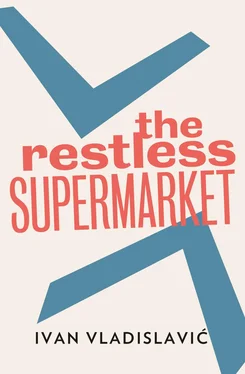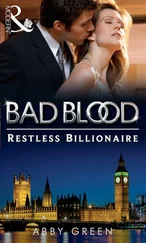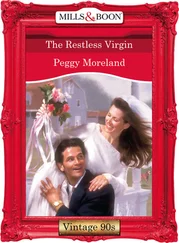She gave me her telephone number and said I should ‘call’. Yoo-hoo. Not blinking likely. I did try to give her a peck on the cheek and dealt her instead a nasty blow on the nose with the frame of my spectacles.
She became tearful. I remember she opened her bag, which smelt of Zoo biscuits and Gee’s Linctus, and found a handkerchief. While she dabbed at her eyes, I considered the monogram. DG. That would be the late lamented Douglas. He seemed fascinating to me all of a sudden. I should have liked to know more about him. Did he have a moustache? Was he a golfer? What did he do for a living? But I could not pursue this line of questioning because Il Puce was panting foully in my face. She had been carried in especially to make her farewells.
‘Say goodbye to Benny.’
I had to shake the dogsbody by the paw.
‘Keep in touch!’
And that was that.
With Merle gone, I should have been able to concentrate on my work. I’d always enjoyed her company too much (I don’t mind saying that I’d grown fond of her), and I welcomed the opportunity to find my own way again. But I had lost interest in ‘The Proofreader’s Derby’, the circumstances just weren’t conducive, I was listing on the tide of change, going under, and it was all I could do to send off the occasional letter to the editor, desperate notes that smelt tipsy from having been shut up in the sticky gourd of Wessels’s company, and got short shrift.
Some time after Merle left, I came across Withering in the paper, I mean William, the botanist, the one who worked on the foxglove, and I had a mind to write to her about it. I looked up her address in the Book. Imagine my chagrin to find it listed as Slvmnte. I thought she’d gone to roost with the bad eggs of Illovo. But Slvmnte? Where the dckns was that?
My eye roved over the next page or two: Lnehll. Hlfwy Hse. Where Wessels was thinking of retiring to. Qllrna. Sdrrd. Vgnvw. Properly Veganview. Overlooking the fruit and vegetable market, I’ll warrant.
Where were the vowels? Was this what the drudges meant by ‘vowelence’? The city had been shot full of holes. It was turning into the sort of place a Boguslavić would feel at home in.
*
The story remains to be told of the losing battle Erasmus and I fought to keep the Book free of abbreviations. Bones with the marrow sucked out of them. ‘Leave out an “a” here and an “e” there,’ Erasmus warned the bigwigs at Posts and Telecommunications, ‘and you’ll be leaving out half the alphabet in the end.’ And he was right. Someone should find out the meaning of Brnnda and Rwltch, Slvmnte and Wst Prgs, and publish a list for use in emergencies.
*
Mrs Mavrokordatos, our oracle, told me to be happy in my misery and apologized about the Star . Subscription cancelled.
The next morning, there was a sign on the door: Under New Management.
‘They should hang one of those on the Houses of Parliament,’ I told Wessels.
That unstable epoch. Every day brought a new departure, and every other day a new arrival. There was so much coming and going, one could not always tell them apart.
The New Management called itself Anthony. A manager? That dog in a manger (7)? Before you could whistle, he’d taken out the porcelain urinals and installed industrial troughs made of stainless steel, more fit for hospital laundries and army messes than a café. You’d think he was expecting a corrosive new strain of urine. Handfuls of solid disinfectant were always disintegrating in these troughs, and I made it my business, when I answered the call of nature, to shift the pellets aside hydraulically so that they would not clog the drainage pipes. He wanted to rename the cloakrooms, he already had the little signs — Amadoda and Abafazi — but I wouldn’t stand for it. ‘How on earth will people know which is which?’ I said. ‘We’ll be Ladies and Gentlemen here, thank you very much, so long as even one decent person remains among us.’
God forbid a stone should be left unturned. The New Management embarked upon its alterations, knocking down walls and blinding windows. I had the devil’s own job saving Alibia. He would have sloshed some Portuguese colour scheme all over it. Our beautiful brocade ended up in the alley, and then on the backs of the Queen of Sheba and her entourage. I arrived one morning to find the door bolted against me: Closed for renovations. That’ll be the day! I banged until he let me in. Place was frightfully full of brick dust, but I took up my post regardless.
In the new room through the archway, workmen were running wiring through plastic conduits and smoothing plaster with trowels. Wessels said that the New Management was putting in a [Candido] Jacuzzi, place was becoming a fully-fledged bordello, but I could see by the light fittings what was in store. Our numbered days flew apart, rushed to the four corners of a flat world, disappeared down holes.
‘Snooker, origins unknown,’ I told the New Management, ‘although one might speculate. In my day, snooker saloons were not frequented by gentlemen, who preferred billiards, from the French billette , diminutive of bille , a tree trunk. But I grant that a certain old-world charm has attached itself to the pastime over the years, what with bowties and embroidered waistcoats. And one does need an eye. In short, I’m prepared to put up with snooker tables.’
‘Not snooker, man, pool.’
‘Pool! That’s a different ball game altogether. Snooker by numbers. They trick the balls up with digits, for those who are incapable of remembering the value of a colour. That will attract the wrong crowd.’
Which it did. A sort of gang. The doors had hardly opened on the refashioned Café Europa when Errol and Co ‘rolled up’ and ‘parked off’, as if they were motor vehicles.
The first thing I noticed about them was their footwear. The boys were shod in tennis shoes with treads like tractors and oversized sandals with soles like the pontoons on a seaplane. The girls, on the other hand, went in for military surplus.
‘Bovver boots,’ Wessels said, when I drew his attention to them.
‘Bother.’ He also says Smiff. He had a friend of that name in the force, another lid , a Captain Keef Smiff.
‘Bovver,’ he insisted. ‘That’s what they calls them.’
The man’s ineducable. You’d think he was one of the lost generation the television’s always rabbiting on about.
The other thing one could not fail to notice about Errol and Co was that they were daubed all over with writing: slogans, labels, tattoos. I had made allowances for Bogey’s declamatory clothing because he came from a deprived society, where opportunities for expressing oneself were few and far between. But what excuse could one make for this lot?
I’d been keeping a list of such things for decades, and trying to search out trends — the names of American colleges, the faces of popular stars, obscene humour — but the practice had become so anarchic, it defied understanding. Most of the slogans were nonsensical. Blue! for example, on a yellow shirt. Aqua. Factory. Sweat. Big shirts with ‘Big Shirt’ printed across them in 72 point Garamond. Baseball caps with ‘Boy’ written on them. Africans do not like being referred to as ‘Boy’, and so I supposed this to be a provocative gesture. But when the girls wore the caps, I wasn’t sure what to think. Is Raylene one of these newfangled ‘gender-blenders’?
They tried to push me around in the beginning, but I stood up to them. I was never afraid of bullies, as Erasmus at Posts and Telecommunications could testify. I could always get the better of them with words: their nursery language didn’t stand a chance.
‘I’ll evaginate you, you over-inflated little windsock,’ I remember saying to Errol the day he tried to occupy table No. 2, whose little perspex signboard now seemed to state, with obvious pathos, that it was a table for two: Wessels and me.
Читать дальше












